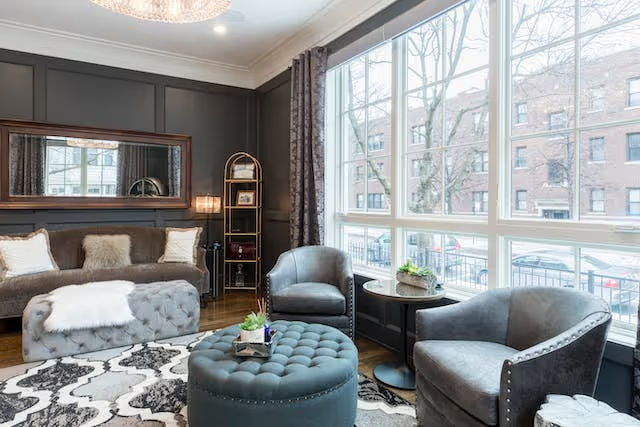
Blog
When You Should Not Buy a Home in New Zealand
12 occasions when homeownership isn’t the right move
Buying a home is often considered the ultimate Kiwi dream, a dream backed by idyllic images of weatherboard, white picket fences, kids playing in the yard, and barbecues with family and friends. Such images fill our imaginations, aside from the fact buying a home is also widely accepted as a smart financial decision.
Renting is typically seen as “throwing money away”, while homeownership has long been a symbol of stability, growth, financial security, and generational wealth-building that has captivated Kiwis for generations.
Owning a home can be a rewarding experience. However, despite the advantages it's not the right choice for everyone, and in some cases buying a home may actually hinder your financial goals and lifestyle aspirations.
Let’s dive into 12 instances where the answer to the home-buying question might just be a resounding "not now".
1. You Don’t Want the Long-Term Financial Commitment
A mortgage, the primary means of financing a home purchase, is a significant financial commitment that can stretch over decades.
New homebuyers in New Zealand spend more than half their income, on average, on mortgage repayments, according to CoreLogic.
Owning a home also comes with additional expenses, including rates, insurance, ongoing upkeep, and maintenance.
You might be faced with unexpected repairs, which can strain your finances, including plumbing emergencies, electrical issues, a cracked driveway, roof leaks, insulation, appliance failures, and structural damage.
This ball and chain of financial responsibility can limit your ability to invest in other areas, pursue entrepreneurial ventures, or enjoy the flexibility of a mobile lifestyle.
2. You Don’t Want to be Tied to One Place
The Kiwi dream can be a bit of a drag. If you've got itchy feet, a passport, and a list of countries waiting to be explored, owning a house might be an anchor for you.
Owning a home can limit your ability to relocate on a whim for career growth, educational pursuits, or that coveted Overseas Experience (OE).
Committing to a 30-year mortgage can make the notion of packing your bags for an impromptu Thai adventure seem like a distant fantasy and a logistical nightmare.
Sure, you can rent out your property, but if you're gallivanting overseas, in most cases you’ll have to significantly top up the rental income you receive to help repay the mortgage. That means you’ll be siphoning off your savings, or you’ll still need a well-paying job while you travel. And, what if the property is vacant for a long stretch?
Before you climb the property ladder, take a moment to reflect on your aspirations. Do they involve backpacking through South America or Europe, or something similar? If your life plans are still up in the air, renting is your ticket to flexibility until you're ready to put down roots.
Related topic: Rentvesting
3. It Could be Cheaper to Rent
A recent analysis by BNZ has found it is now more cost effective to rent a New Zealand house than to buy one.
This is due to a widening gap between the costs of buying and renting, which has been driven by higher mortgage rates, house prices, and associated costs including council rates.
The analysis found that the cost of buying a new house now requires an average of 50% of household income, while the cost of renting averages 24% of household income. This gap is particularly pronounced in Auckland, where 63% of income is required to service a new home loan, compared to 20% of income to rent.
“Overall, it’s clear that high-interest rates have widened the wedge between the costs of renting vs. buying,” Jones said.
Despite this, BNZ's chief economist Mike Jones has cautioned that renting may not necessarily be the most cost-effective option in the long term.
“First, inflation tends to deflate the value of borrowers’ debt over time, while rent payments tend to rise with inflation,” Jones said. “But more importantly, what happens to house prices ends up being the key swing factor. And no one knows what’s going to happen there.”
He said simply crunching the numbers “risked missing all the big non-financial and circumstantial considerations involved in a buy/rent decision”.
“It’s hard to put values in the spreadsheet for things like security of tenure and being able to hang your pictures up or renovate. When it comes down to it, these may well end up being the most important in the decision,” Jones said.
4. You Want to Own it for a Short Period
Property tends to increase in value over the years. This means homeowners get to build some equity in the ‘house piggy bank’. What's equity, you ask? It's the difference between what your home is worth should you sell it today and what you still owe on your mortgage.
But hold up! Before you start imagining swimming pools filled with cash, let's keep it real. Owning a home isn't a magical ticket to instant wealth. Sometimes, the value of your property can take a dip – just ask those who bought at the height of the market, around November 2021. And there's a whole squad of factors at play, like interest rates, inflation, and the economy's mood swings, that can shake up the profitability of homeownership.
Experts usually recommend keeping your property for at least five years, and usually much longer, to allow for the potential for appreciation, and the accumulation of equity as you also repay a little of the mortgage.
Most people don’t even consider selling a property within a few years of buying one, because:
- Even with your own home, the Inland Revenue Department (IRD) may notice the transaction and decide the sale of the property is a taxable activity. If that happens, any gain you make will become taxable income, i.e., you’ll need to pay tax on any sale proceeds.
- There are tens of thousands of dollars’ worth of seller’s fees and commissions you’ll need to pay. Real estate agents usually take the biggest slice, especially when listing fees, advertising, photos, and staging the property are all included. You’ll probably also have to fork out for a lawyer or conveyancer, any last-minute fixes such as freshening the paint or fixing anything broken, movers, cleaners, final rates and insurance payments, and the fees associated with early repayment of your mortgage. On top of this you might face final body corporate fees, auctioneering services, and to overcome any potential legal troubles.
- You may be breaching the conditions of any support you’ve received to purchase the property, including any support from family.
Think of buying a home as a marathon, not a sprint.
5. You Have Other Investment Priorities
Owning a home might leave you vulnerable to unpredictable expenses and distractions that eat away at what's left to invest. This might not matter for most people, but if you’re a small business owner who’s investing all you can in your own business, then the last thing you want is unexpected house maintenance expenses, or the need to tie up large amounts of funds for a down payment – a steady rent payment is a much wiser idea. The same goes if you’re an aspiring entrepreneur with dreams of solving some great societal problem or building yourself a business empire.
This might apply to education too. Most medical students should focus on meeting course costs so they can obtain a medical doctorate, not a down payment on a home. Of course, after graduating the medical doctor should soon be earning enough to afford a few homes!
Learn more: Stocks versus real estate
6. You Haven’t Saved a Deposit
The ideal deposit for you to purchase your own home in New Zealand is 20%.
This means that for a home valued at $800,000, you will usually need a deposit of $160,000.
If you haven’t saved enough for a 20% deposit, you may still be able to get a mortgage with a lower deposit, but you may be required to meet a different set of criteria.
Moving in with family or flatting with others could be the simplest way to cut expenses and save more for your deposit until you’re ready to buy.
7. You’re Juggling High Debt or Bills
If you must borrow to live your current lifestyle, can you really afford another large debt?
Lender guidelines have changed over recent years, so your cashflow management is king when it comes to obtaining a mortgage approval – the banks will “stress test” the numbers to ensure you can survive interest rates much higher than current levels too!
Paying off high interest debts is usually the best bet in this case.
8. You Have a Poor Credit Rating
Your credit score is the gatekeeper to obtaining a mortgage. A poor score will stop the banks lending to you and will need to be addressed first.
Tackling your credit issues before attempting to secure a mortgage is not just wise; it's a prerequisite for a smoother financial journey.
9. You’re Not Interested
Does homeownership align with what is important to you or are you considering buying to meet some social expectation? There is nothing shameful about not owning a home – the ideals of the 1950s are dead.
Financial success is as much about making smart financial decisions as it is about tuning in to what's important to you. Homeownership is not the ultimate, and there are many ways to build significant sums of wealth. If you love non-property investing and are committed to it, then keep going your own way.
10. You’re in an Unstable Relationship
Single people do buy homes. However, due to the cost most people buy a home with a spouse.
What will you do if you're relying on your partner's income and support to make mortgage payments and that person leaves your life?
If you do manage to buy the property on your own and are in a relationship, they could be entitled to take half the house when you split, even if they haven’t contributed to the purchase of the home.
According to New Zealand’s relationship property laws, if you have been together for at least three years, the general rule is that anything classed as relationship property is divided equally between you, even if you chipped in more to the deposit and regular mortgage repayments!
Learn more: Financial relationship warning signs
11. Your Financial Circumstances Are About to Change
If job stability is uncertain or major life changes, like starting a family, are on the horizon, buying a home might not be the best in terms of timing.
If you lose your job this could lead to missed mortgage payments, and at worst a mortgagee sale.
Alternatively, if you’re a young couple who is considering having children soon you need to factor this into your financial forecast. Will you be able to keep up with mortgage payments on one income and with an extra mouth to feed? Will you have to rush back to work to keep up with mortgage payments and other home-related expenses?
Of course, there can be ways around these scenarios. For instance, you could get a border into a spare bedroom, or rent out the property.
12. “Everyone Else is Doing it”
Everybody's doing it, right? Wrong! Resist the urge to follow the crowd blindly. What works for your neighbour might not work for you.
Remember, your financial decisions are as unique as you are. Peer pressure should have no place in your wealth-building journey.
The Bottom Line: You Don’t Have to Buy a Home
Buying a home is quintessentially Kiwi, but it’s not necessarily for everyone. Even if it is for you, it still might not be for you right at this moment.
Passing on buying a house isn't a defeat; it can be a strategic manoeuvre.
And don't let the allure of renting be overshadowed. No rates, no fixing leaky roofs, no unexpected water leaks – just the freedom to tackle life without the added burden of property expenses and responsibility. Plus, if your game plan involves investing in something else instead, sidestepping the property market may open the door to untapped potential.
It’d be the pleasure of one of our trained professionals to help you work through any of the topics mentioned above, get in touch today.
You may also like:

How Safe Is Your Job? Future‑Proof Your Income

Money Mistakes Even High-Income Earners Make


